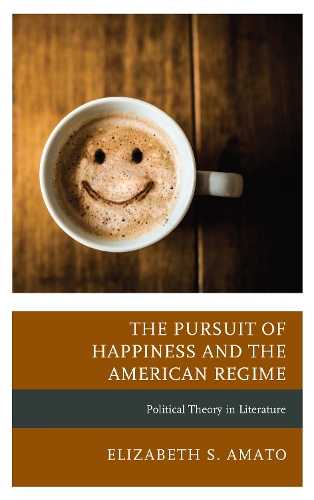
The Pursuit of Happiness and the American Regime: Political Theory in Literature
(Hardback)
Publishing Details
The Pursuit of Happiness and the American Regime: Political Theory in Literature
By (Author) Elizabeth Amato
Bloomsbury Publishing PLC
Lexington Books
28th February 2018
United States
Classifications
Professional and Scholarly
Non Fiction
Literature: history and criticism
Politics and government
813.009353
Physical Properties
Hardback
198
Width 156mm, Height 240mm, Spine 22mm
485g
Description
The Declaration of Independence claims that individuals need liberty to pursue happiness, but provides little guidance on the what of happiness. Happiness studies and liberal theory are incomplete guides. Happiness studies offer insights into what makes people happy but happiness policy risks becoming doctrinaire. Liberal theory is better on personal liberty, but weak on the what of happiness. My argument is that American novelists are surer guides on the pursuit of happiness. Treated as political thinkers, my book offers a close reading of four American novelists, Tom Wolfe, Walker Percy, Edith Wharton, and Nathaniel Hawthorne, and their critique of the pursuit of happiness. With a critical and friendly eye, they present the shortcomings of pursuing happiness in a liberal nation but also present alternatives and correctives possible in America. Our novelists point us toward each other in friendship as our greatest resource to guide us towards happiness.
Reviews
In our pursuit of happiness, Americans often look first to secure our comfort, prosperity, and self-esteem. Elizabeth Amato uses some of the best writers that American literature has to offer to upend this notion. Through a keen reading of such novelists as Walker Percy, Tom Wolfe, and Edith Wharton, she reveals the truth that lifes challenges confound the pursuit of material happiness, and through them, offers a reminder that a more lasting and moderate happiness flows from ordered liberty and a concern for the truth and beauty of ordinary life. -- Brian A. Smith, Liberty Fund, Inc.
Elizabeth Amato has called a truce in the quarrel between philosophy and poetry. Drawing on 19th and 20th century novels she demonstrates how literature better prepares us for the pursuit of happiness. Amatos reading of worksby Tom Wolfe and Edith Wharton offer new insights into liberalism. The Pursuit of Happinessis an important contribution to the study of politics and literature. -- Natalie Taylor, Skidmore College
In an age dominated by self-help books promising to cure any number of problems, it seems that Americas on-going pursuit of happiness might be solved in just twelve easy steps. Exploring the science of contemporary happiness studies, Elizabeth Amato artfully suggests that a more nuanced way to think about the possibilities of happiness lies in the work of American novelists. Exploring the work of several writers, Amato convincingly shows how these authors address the myriad possibilities for happiness in ways that allow the reader to freely determine her own best course. Should such attempts come short, Amatos prescription of returning to American novelists is a path to greater happiness in itself. -- Sara MacDonald, St. Thomas University
Author Bio
Elizabeth Amato is assistant professor of political science at Gardner-Webb University.
